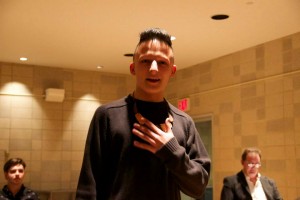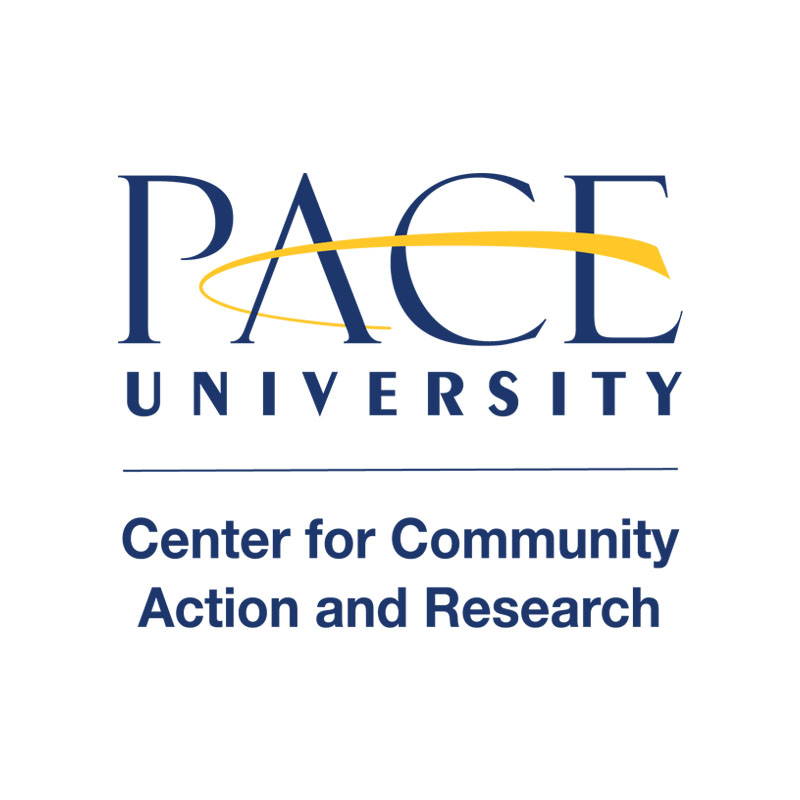Activist Spotlight: Matthew Champagne
Our final activist spotlight of the Fall 2015 semester is Matthew Champagne, a Pace senior who balances being a full-time student with the Eagle Project, where he is the Associate Artistic Director and the Director of Educational Programming. Read on to learn more about Matt’s awesome work and why he thinks all Pace students should seek to be involved!
Year of Graduation: 2017
Major(s): Directing and History
Minor(s): Classical and Medieval Studies
Career Aspiration: I aspire to work closely with marginalized groups and empower them to tell their stories.
What are some of the groups and projects that you have been involved with? Can you tell us about any leadership roles you have had?
Eagle Project is a grassroots, not-for-profit, New York City based theatre company, fiscally sponsored by New York Live Arts, that fuses the performing arts and the heritage of America’s indigenous tribes to engage audiences in a dialogue that explores what being an American consists of and what it stands for. I am the Associate Artistic Director and the Director of Educational Programming for Eagle Project. The mission of our education department is to empower everyone to recognize, question and challenge the misconceptions, prejudices and stereotypes surrounding Native Americans and other marginalized cultures that have been accepted as fact for centuries and permeate contemporary society. As the Founder and Director of Eagle Project’s department of education I have the privilege of working with a variety of institutions – museums, high schools, universities – where we present and perform historical events surrounding Native American culture.
I began the process of establishing Eagle Project’s education department by generating a lesson plan based the play Waaxe’s Law by Cherokee playwright, Mary Kathryn Nagle. Waaxe’s Law tells the true story of Chief Standing Bear and his journey for justice – a journey that resulted in the first federal court decision declaring American Indians to be “persons” in the eyes of the law. In 1868 Chief Standing Bear and his tribe, the Ponca, were forcibly removed from their ancestral homeland surrounding the Niobrara River in northern Nebraska to southern Oklahoma: “the Ponca walked across two states, survived two tornadoes, and witnessed the attempted murder of their chief. By the time they arrived in the ‘Warm Country’, they had lost many of their people.” Chief Standing Bear’s only son was one of the tens of thousands of causalities from the hundreds of trails of tears that become all too common for Native Americans throughout the 19th century. Chief Standing Bear was arrested because he left Indian Territory without permission in order to bury his son in the land of his ancestors in Nebraska. After agreeing to renounce his leadership role as Chief of the Ponca people, Standing Bear was recognized as a person in the eyes of the waaxe’s (white man’s) law.
The police and bureaucratic brutality that Chief Standing Bear endured is very similar to the extreme levels of policing that Native Americans, Black Americans and other marginalized groups experience every day; currently exemplified in the #BlackLivesMatter movement. Eagle Project uses Waaxe’s Law as a vehicle for social change by empowering students to become leaders in their communities through recognizing, questioning and challenging the causes of our societies many problems. Eagle Project believes that many young people possess the skills to combat the problems facing their communities but that they are not empowered to use them, nor are they taught to think critically and recognize that there are any problems to begin with. Eagle Project uses the performing arts when working with youth and under-served communities in order to equip the next generation with the necessary tools to make history, and not to repeat it.
How did you become so inspired to work with Eagle Project?
Although I am a history major, I was a student of history long before I came to Pace. Throughout my high school career, I discovered that history was an incredible vehicle that I could utilize to cope with my homosexuality. Growing up in a stereotypically quiet, suburban, New England town I felt incredibly marginalized by the world in which I grew up. I took comfort in dozens of fascinating and rich histories of non-western cultures that not only acknowledge but also embrace the queer members of their societies.
More than 130 tribes, all native to North America, recognize and praise two-spirited individuals. Two-spirit is a term that has been utilized by indigenous nations to describe gender fluid and queer people for hundreds, if not thousands, of years. I find it both socking and appalling that currently classrooms in American ignore the 10,000 years of history of the egalitarian nations that once covered North America. Through my work with Eagle Project, I help make difference in our society visible, while challenging the misconceptions preached in high school classrooms; chief among them that our current racist, misogynist, capitalist, cis/heteronormative, patriarchal society is “natural.”
Tell us about your most memorable experience with your work.
In fall of 2014 Eagle Project hosted our Harvest Moon Gala to celebrate our success and raise funds for our third full production, Broken Heart Land by Cherokee playwright Vicki Lynn Mooney. Throughout the Gala actors took part in staged readings of selected scenes from some of the works that Eagle Project had a hand in cultivating. An example of one of these works was Manahatta by Mary Kathryn Nagle, which is the story of when a modern day Lenape woman returns to her ancestral land to work on Wall Street. She must reconcile all that her people have lost with what she now attempts to gain. During the staged reading of the last scene from Manahatta the essence of the story, loss and discovering who you truly are because of it, was vocalized so beautifully that I was brought to tears. At that point I was only a casual volunteer with Eagle Project; however, after experiencing the power that theater has the ability to harness, I knew I had to do more and dedicated myself to the development of this incredible work.
Is it difficult to balance school work and extra-curricular activities? How do you do it?
Frankly, balancing my responsibilities to both Pace and Eagle Project is exhausting because graduating on time and developing an education department are both full-time jobs. However, as of yet, all the work I do for both Pace and Eagle Project is completely voluntary with no monetary benefits or compensation. I am only able to balance the two because I sacrifice sleep, skip meals and disregard most social events. I do all of this willing because I love the incredible opportunities to learn and grow that are available at both Eagle Project and Pace. To put in the time and effort that I devote to both institutions I have to undoubtedly love and be willing to sacrifice anything for these incredible opportunities to apply the theory that I learn in the classroom to the performing arts and utilize theater as a vehicle for social change.
Why do you think it is important for students to be civically engaged?
It is important for students to be civically engaged because as college students we are endowed with a great amount of privilege. We have the luxury to study our various fields of interest and are enabled with the opportunities to have an incredible impact on the world. However, with great privilege comes a great amount of responsibility to take what we are learning and give it back to the communities in which we are allowed to learn, work and grow. While Eagle Project’s mission encompasses indigenous peoples and marginalized groups throughout America, we work closely with various New York City based institutions because in New York the systemic racism of America’s bureaucratic system is very apparent, as is the availability of resources to combat this perverse system.
Do you have any advice for students that would like to become more involved?
Eagle Project has many volunteer opportunities for students who are interested in using the performing arts as a vehicle for social change; however, these opportunities are primarily available during one of Eagle Project’s full productions. The best way to get involved with Eagle Project is by emailing us at eagleprojectarts@gmail.com, so we can contact interested students when opportunities arise.
Speaking more generally, I think the best way for students to get involved and make careers out of what they have a passion for is by first figuring out what it is that they love doing, that special interest that they could not live without. If they can do that and fight for it, then the way to make that thing their life’s work will present itself. It may entail making sacrifices but that is the test for whether or not it is truly their passion. If it is then they should be able to make those concessions very easily.






